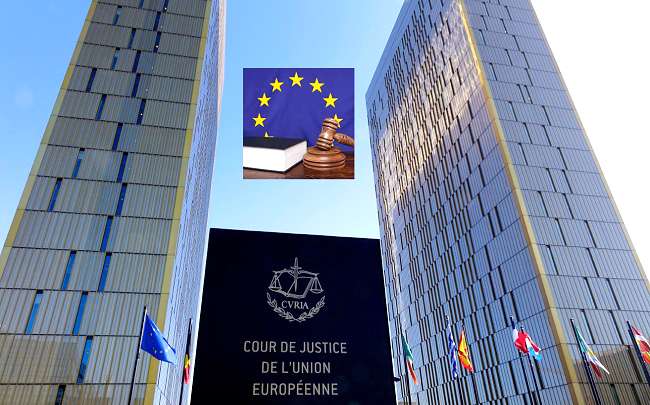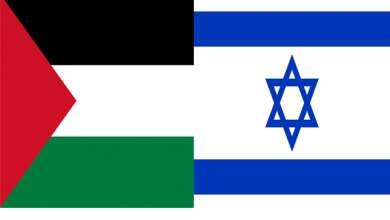Concept of ‘Spouse’ Within the Meaning of Directive 2004/38 – Context of a Marriage Between Two Men

Coman & Ors v Inspectoratul General [2018] EUECJ C-673/16_O (11 January 2018)
Introduction
- The present request for a preliminary ruling concerns Article 2(2)(a), Article 3(1) and (2)(a) and (b) and Article 7(2) of Directive 2004/38/EC of the European Parliament and of the Council of 29 April 2004 on the right of citizens of the Union and their family members to move and reside freely within the territory of the Member States amending Regulation (EEC) No 1612/68 and repealing Directives 64/221/EEC, 68/360/EEC, 72/194/EEC, 73/148/EEC, 75/34/EEC, 75/35/EEC, 90/364/EEC, 90/365/EEC and 93/96/EEC. (2)
- It provides the Court with the opportunity to rule, for the first time, on the concept of ‘spouse’ within the meaning of Directive 2004/38 in the context of a marriage between two men. To do so is a delicate matter for, although it relates to marriage as a legal institution, in the specific limited context of freedom of movement of citizens of the European Union, the definition of the concept of ‘spouse’ to be given will necessarily affect not only the very identity of the men and women concerned, and therefore their dignity, but also the personal and social concept that citizens of the Union have of marriage, which may vary from one person to another and from one Member State to another.
- Conclusion
- In the light of the foregoing considerations, I propose that the Court should answer the questions for a preliminary ruling submitted by the Curtea Constituţională (Constitutional Court, Romania) as follows:
(1) On a proper construction of Article 2(2)(a) of Directive 2004/38/EC of the European Parliament and of the Council of 29 April 2004 on the right of citizens of the Union and their family members to move and reside freely within the territory of the Member States amending Regulation (EEC) No 1612/68 and repealing Directives 64/221/EEC, 68/360/EEC, 72/194/EEC, 73/148/EEC, 75/34/EEC, 75/35/EEC, 90/364/EEC, 90/365/EEC and 93/96/EEC, the term ‘spouse’ applies to a national of a third State of the same sex as the citizen of the European Union to whom he or she is married.
(2) Article 3(1) and Article 7(2) of Directive 2004/38 must be interpreted as meaning that the spouse of the same sex as a citizen of the Union who accompanies that citizen in the territory of another Member State enjoys in that territory a right of residence of more than three months, provided that the Union citizen concerned satisfies the conditions laid down in Article 7(1)(a), (b) or (c).
Article 21(1) TFEU must be interpreted as meaning that, in a situation in which a citizen of the Union has developed or consolidated a family life with a national of a third State while actually residing in a Member State other than that of which he or she is a national, the provisions of Directive 2004/38 apply by analogy when that citizen of the Union returns, with the family member concerned, to his or her Member State of origin. In that situation, the conditions for the grant of a right of residence for a period of more than three months to the national of a third State, who is the same-sex spouse of a Union citizen, should not in principle be stricter than those laid down in Article 7(2) of Directive 2004/38.
(3) Article 3(2) of Directive 2004/38 must be interpreted to the effect that it can be applied to the situation of a national of a third State, of the same sex as the citizen of the Union to whom he or she is married in accordance with the law of a Member State, whether as ‘[another] family member’ or as the ‘partner with whom the Union citizen has a durable relationship, duly attested’.
(4) Article 3(2) of Directive 2004/38 must be interpreted as meaning that:
– it does not oblige Member States to grant the national of a third State legally married to a Union citizen of the same sex a right of residence on their territory for a period of more than three months;
– Member States must nonetheless ensure that their legislation includes criteria that allow that national to obtain a decision on his or her application for entry and residence that is founded on an extensive examination of his or her personal situation and, in the event of refusal, is supported by reasons;
– although the Member States have broad discretion in selecting those criteria, the latter must be consistent with the normal meaning of the word ‘facilitate’ and must not deprive that provision of its effectiveness; and
– refusal of the application for entry and residence may not at all events be based on the sexual orientation of the person concerned.
Read the full decision: https://is.gd/IaIDMM





